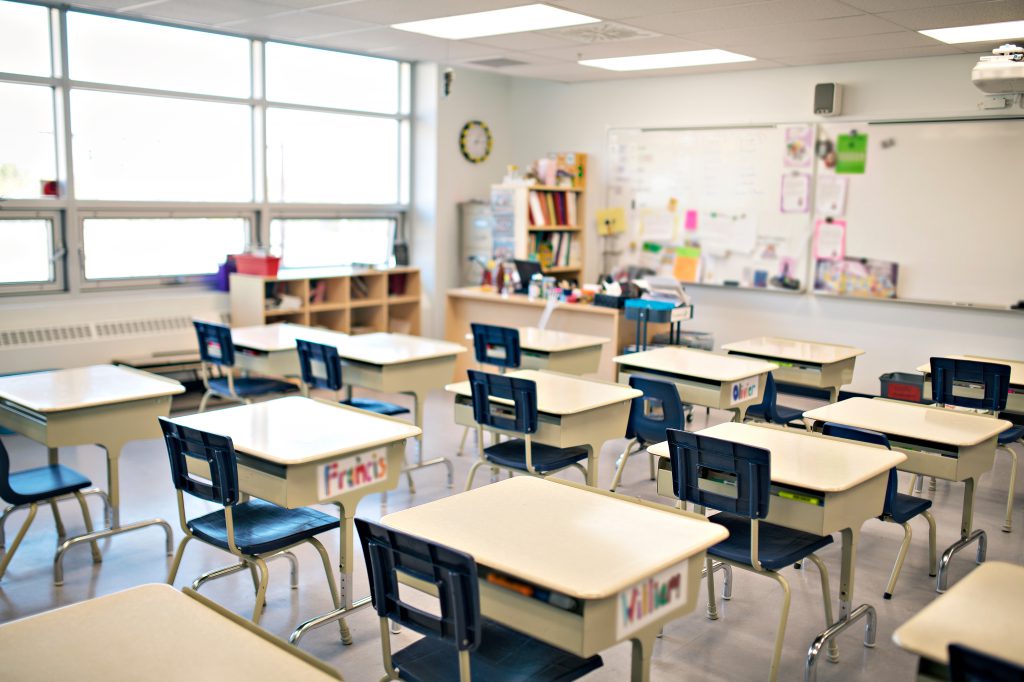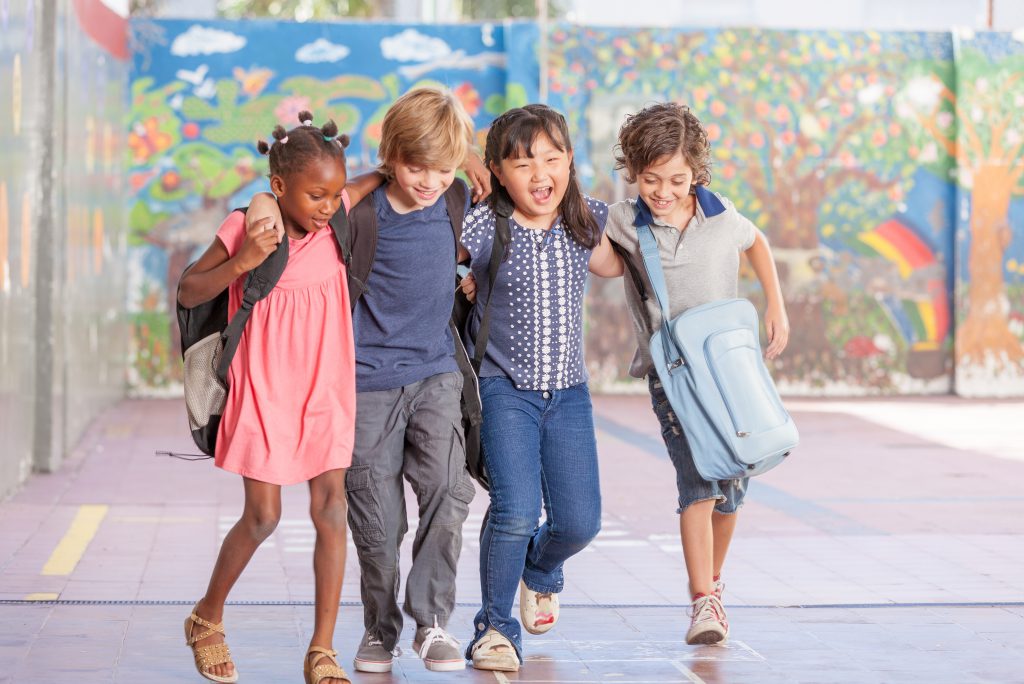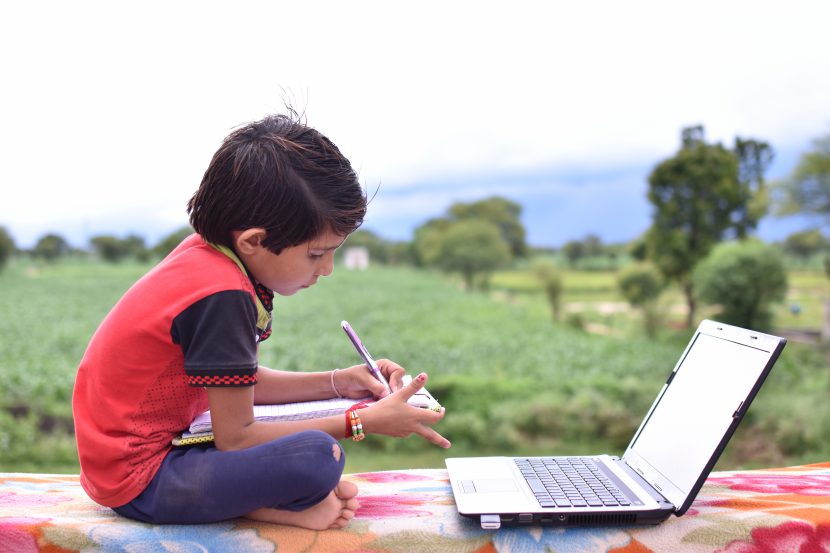The Steering Committee for the Rights of the Child (CDENF) has launched a series of webinars on the most urgent challenges related to children’s rights in the context of the COVID-19 pandemic. On 22 March 2021, Humanium attended the first such webinar titled “Overcoming education challenges”.
Webinars on child rights challenges during the pandemic
In its plenary session in November 2020, the Steering Committee for the Rights of the Child (CDENF) approved a concept paper on the organization of three practical webinars on the most urgent issues related to children’s rights in the context of COVID-19. The focus areas selected for these exchanges are access to education, protection from intra-family violence with a focus on children at risk and children’s mental health and their need for specialized support services (Council of Europe, 2021).
Humanium has actively participated in the first webinar titled “Overcoming education challenges”. The aim of the webinar was to jointly reflect and elaborate guidance on:
- implementing children’s right to education during the pandemic, while considering possible action taken to improve the adaptability of education systems to similar crises in the future;
- reconciling public health policies and life in the classroom, considering children’s fundamental social and protection needs as well as the mental health of school students during lockdowns; (WHO, 2021)
- crisis-recovery strategies and long-term improvements to be pursued, including social inclusion, the assessment of policies, pedagogical approaches, technological equipment, financing gaps or parental involvement in the school system (Council of Europe, 2021)
During the webinar, indeed, there has been a profitable exchange on good practices amongst the participants who provided responses to educational issues in the current health crisis.
Child participation during the first webinar
One of the outcomes of this webinar was bringing together CDENF national delegations, participants, observers and international experts, as well as children who had constructive discussions on a number of important issues, inter alia, access to education, digital/home schooling, inclusion, and safety. It was in fact concluded that it is necessary to work towards a better future for children with children.
In particular, during the webinar, two children took the floor to make their voices heard.
Gustavo[1] (12 years old) underlined that when the pandemic had started, students and teachers did not have the time to prepare for the shift to online classes, and children were confused. He also explained how some students did not have the necessary equipment for online learning as well as a dedicated space for studying. Moreover, he talked about the feeling of isolation that a lot of students felt at that time, while asking the audience the following:
“As I feel that countries don’t define their priorities, I would like to ask what you think should be the priority of a country that faces a pandemic?”
– Steering Committee for the Rights of the Child (CDENF), 2021
Anna (13 years old) reiterated that meeting the needs of individual children in an online environment was difficult. Learning at home also did not guarantee proper integration. The social challenges of the pandemic were described as immense, compromising also extracurricular activities. Schools were typically the most stable environments that children had, and therefore their closure greatly affected all of them.(Steering Committee for the Rights of the Child (CDENF), 2021)
Risks and challenges of remote learning
“Providing our children with education is our duty and responsibility, to ensure they can build their own future with the best possible tools at hand. Far too many children today are living in home conditions that prevent them from getting the education that they deserve. The COVID-19 crisis has exacerbated an already far too big a gap.”
– Josep Borrell, EU High Representative for Foreign Affairs and Security Policy and Vice-President of the European Commission
As of March 2020, school closures in response to the COVID-19 pandemic meant that more than 90% of children and youth enrolled in schools worldwide had to leave the classroom. This prolonged interruption has raised a great amount of concern, as studies on the effects of the closure of educational institutions show that even brief school disruptions can result in significant educational loss for children and youth (Council of Europe, 2021).
In fact, the concrete restrictions on people’s freedoms have severely compromised the possibility of constructing quality educational and pedagogical proposals, thus jeopardizing children’s fundamental right to discovery and research. It is important to keep in mind that school closures have long-lasting effects, amplifying disadvantage and the cognitive, social and emotional level (Council of Europe, 2020).
As education could not stop like manufacturing activities, it had to adapt to the contingent situation. In fact, to mitigate the impact of school closures, countries around the world have been investing rapidly in distance teaching and learning solutions delivered through a variety of channels, including online platforms, television and radio programs, and paper-based learning materials for use at home (Council of Europe, 2021).

Digital education has been indeed a leading theme of European policies for years, and the recent Commission Action Plan for Digital Education 2021-2027, entitled “Rethinking Education and Training for the Digital Era” reaffirms the centrality of the theme of digital innovation in European education and training systems. Apart from that, it also highlights the challenges policy makers are called to address in the post-COVID era (European Parliament, 2020).
Moreover, the reflection of the European Parliament and the EU institutions that Internet access should be introduced as a fundamental human right for all, is considered essential, especially since it would promote social inclusion and reduce inequalities, ensure equal access to learning and increase digital skills (European Parliament, 2020).
But despite great opportunities that digital technologies have offered during these difficult times of pandemic, there are different factors that must be considered when addressing the issue of remote learning. In fact, it is important to pause for a moment and ask ourselves whether today’s didactic and methodological deficiencies will remain as indelible marks in the curriculum vitae of these children; whether the sociality being developed during the school years will be affected by these changes; whether technological overexposure to devices will not alter the child’s ability to communicate; and whether a school that excludes contact will not be a harbinger of future phobias (OECD, 2021).
Negative consequences of digital learning
There are in fact many legitimate and appropriate concerns when it comes to digital learning (Unicef, 2021). Firstly, there has been a drop in motivation on the part of the pupils and disinvestment in the school obligations. Then, as schools are also the material place of human relationships among peers and between adults and children, the place where the dimension of sociality is structured, the impossibility to do this remotely can end up feeding a feeling of isolation that leads, in addition to specific unavoidable problems, to an exasperated individualism that is hard to reconcile with the community and social spirit.
Moreover, there is an increased risk of technology addiction. Psychologists have regularly been carrying out information campaigns to describe the risks of inappropriate and uncontrolled exposure to the network and to technological tools for children and adolescents. Another consequence of remote learning is the risk of school dispersion: all it takes is not having the tools to connect or a family that does not monitor the educational path and the possibility of dispersion is very likely to occur.
In fact, the problems that a family must face in order to allow their children to follow lessons at distance are many: living in an area served by a good quality Internet connection; having an adequate stable contract with a telephone company; having a computer/tablet for each child, in addition to those that may be necessary for the parents’ “smart working”; etc.
The convergence of these risks has increasingly facilitated the emersion of discriminatory behaviours that must be necessarily considered when addressing the recovery from COVID-19, and trying to achieve great sustainability and inclusivity (OECD, 2020).
Quality education today forms strong adults of tomorrow
Investing in the future of children can be the driving force behind the psychological and motivational recovery of an entire community that puts education at the core of its policies. The school is the first authority that the child recognizes after the family and therefore has a central formative task in its evolution, not only related to learning, but also in terms of the relations that children will form in their lifetime.
In fact, school lays the methodological and strategic foundations on which future adults will build their world of work. Therefore, it is vital to have a school that knows how to be organized and functional in any future occasions, otherwise what kind of citizens will it introduce into the society of tomorrow? Indeed, during the final remarks of this important webinar, the main argument that emerged was that today’s approach to education must reflect the kind of society we wish to be tomorrow.

Humanium is committed to ensuring that children have a quality education and that they successfully overcome the challenges posed by COVID-19. If you want to support our further actions and projects so that international children’s rights laws can be considered with regards to the digital age, subscribe to our newsletter or become a member. Also, to support Humanium’s ongoing work and contribute to the implementation of children’s rights projects, consider making a donation, and join us in taking action for children’s rights worldwide.
Written by Federica Versea
References:
Council of Europe. (2021). COVID-19 and Children’s Rights: Overcoming education challenges.
European Parliament. (2020). Rethinking education in the digital age.
OECD. (2020). The impact of COVID-19 on Education – Insights from Education at a glance 2020.
[1] Participants’ names have been changed for confidentiality reasons.


